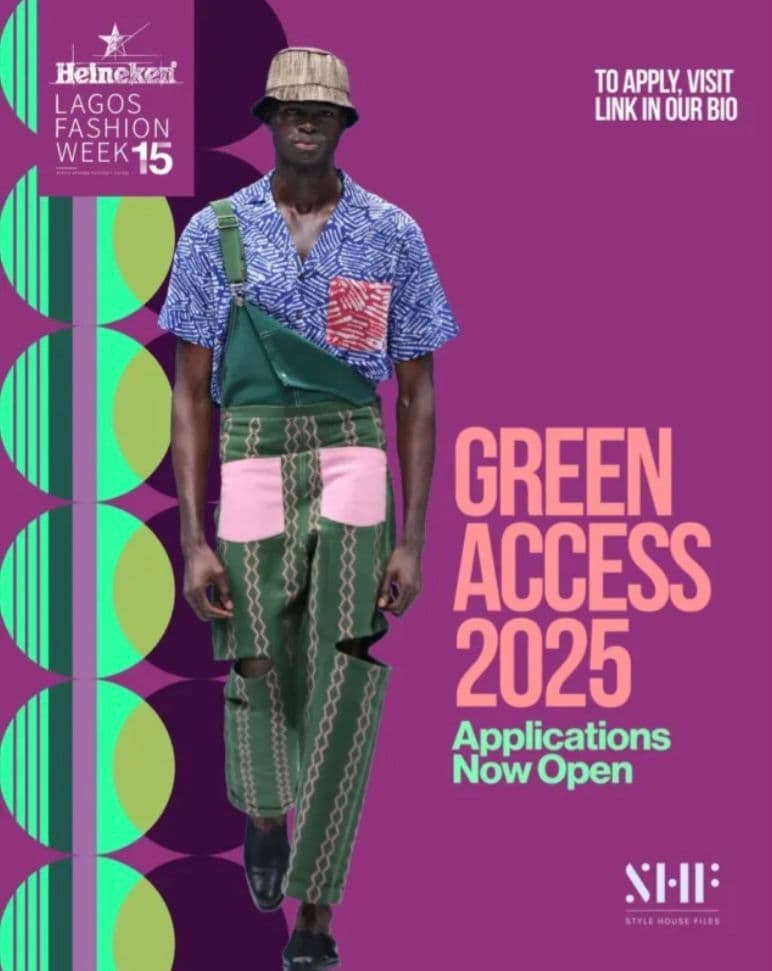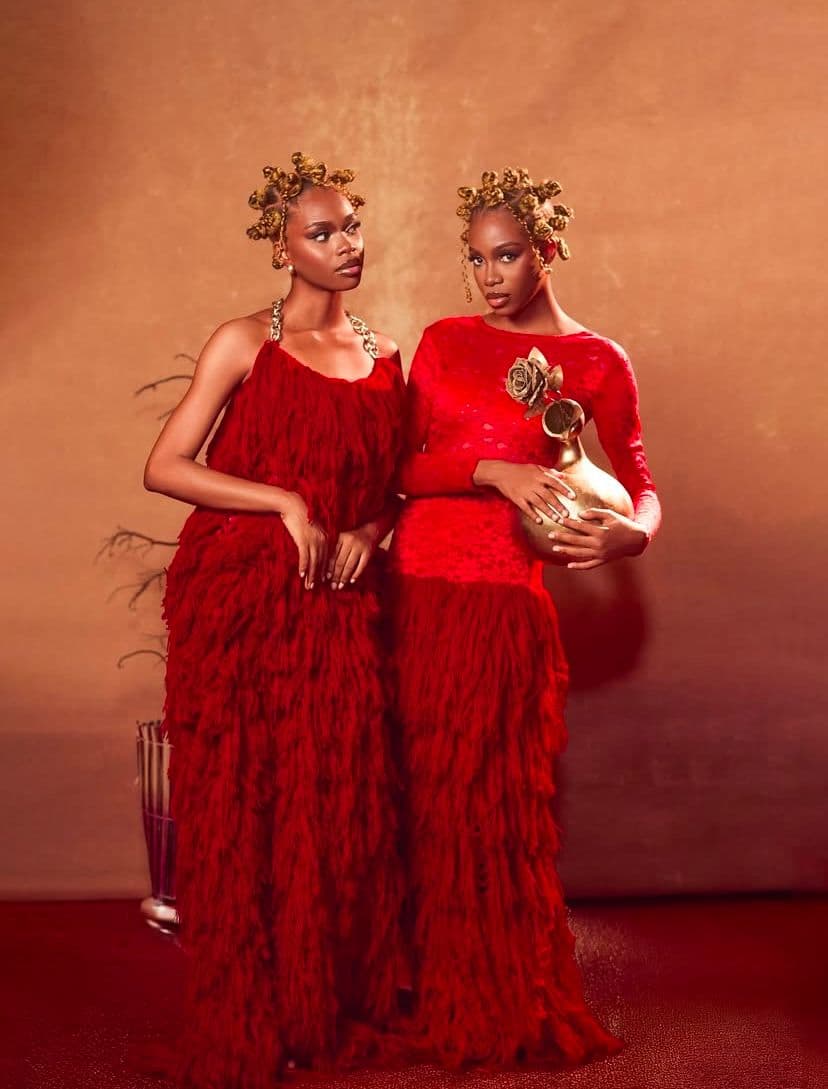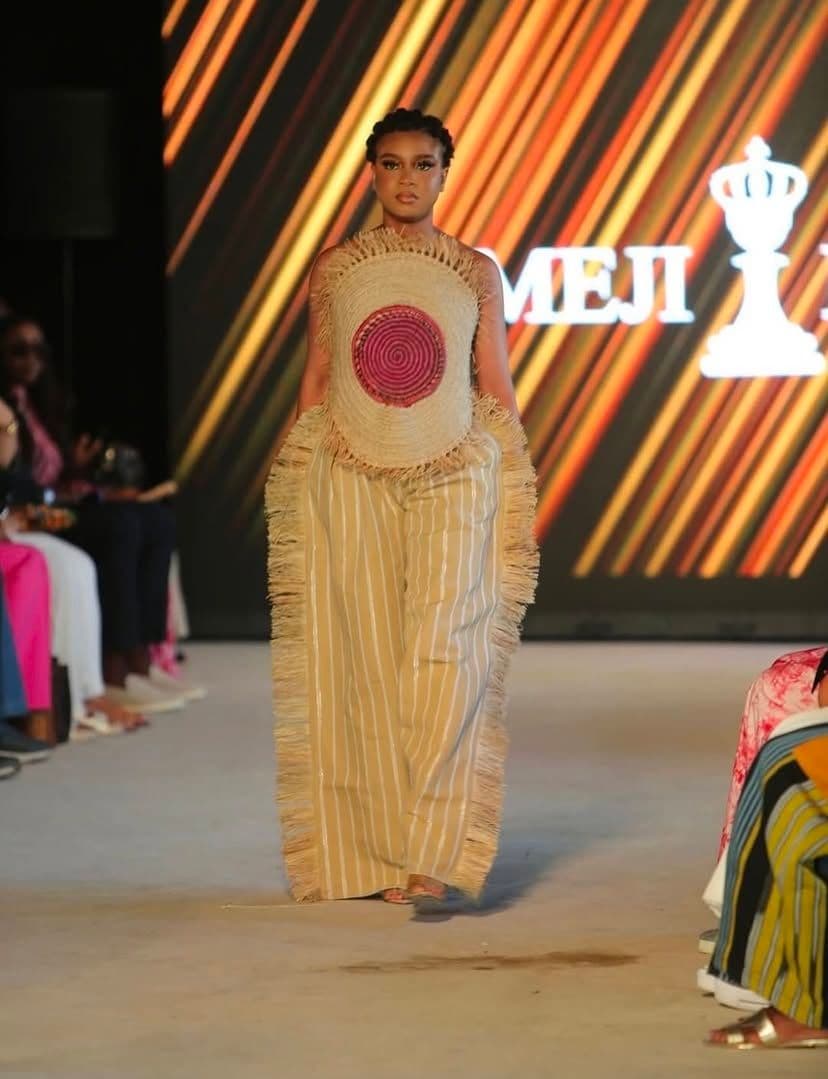Sustainability for Fashion Brands
3 mins read
Green Access 2025: How Waste and Craft are Reimagined for the Future of African Fashion
By Moyosoreoluwa Sanmi-alao
September 8, 2025
Discover how Lagos Fashion Week’s Green Access is transforming waste, craft, and youth innovation into the future of sustainable African fashion.

Applications are now open for Green Access 2025
Since 2018, Green Access, an initiative by the Lagos Fashion Week in collaboration with Style House Files, has been shaping the conversation around sustainability in African fashion. More than just a fashion accelerator, it’s a platform that challenges young designers to rethink the very idea of waste, pushing them to see discarded fabrics, deadstock, and used clothing as design opportunities rather than creative limitations.
Now in its 7th edition, the 2025 cycle of Green Access takes this vision further. This year’s theme explores how Africa’s rich heritage of craftsmanship can be transformed into a tool for material innovation, youth empowerment, and waste regeneration.
Green Access is about extending the life and value of materials through repair, reinterpretation, and reworking. The program also emphasises collaboration with young artisans and vocational groups, ensuring that sustainability translates into tangible community benefits such as skills training and income generation.
For 2025, the platform highlights four areas of exploration:
- Craft-Driven Material Innovation: Leveraging local techniques like raffia weaving, appliqué, embroidery, and patchwork to transform discarded materials into something meaningful.
- Reimagining Waste Streams: Turning both factory offcuts (pre-consumer waste) and used clothing (post-consumer waste) into reconstructed and modular fashion pieces.
- Youth Empowerment: Pairing young apprentices with designers to co-create while strengthening community-based economies.
- Accessories & Digital Exploration: Encouraging experimentation with accessories and digital fabrication tools as new pathways for sustainable design.
The accelerator combines virtual training sessions with a physical residency, where participants learn fabric sourcing, hand-dyeing, and garment construction. Finalists then showcase their collections at the Lagos Fashion Week to be held between the 29th of October and the 2nd of November, putting sustainability at the centre of one of Africa’s most influential fashion stages.
What makes Green Access remarkable is not just its vision, but the designers who bring that vision to life. Oshobor, one of its standout alumni, has shown how waste can be elevated into purposeful design. The brand collects discarded wool from salons and local knitters, repurposing it into cardigans and other structured pieces, thereby turning overlooked byproducts into fashion statements.

Akube set as seen on Instagram | Dimeji Ilori.
Similarly, Dimeji Ilori, a 2023 finalist, crafted his designs from Aso-oke, made in Kwara State. That same story of heritage and sustainability now continues on a global stage, with his collection set to be unveiled at Africa Fashion Week London 2025. These journeys are proof that Green Access is both a program and a platform for designers, reimagining what African fashion can be.

Kwara “Harmony” collection displayed in the African Fashion Week | Dimeji Ilori.
Green Access is amplifying this momentum by supporting designers whose small but deliberate actions are building a more conscious and resilient fashion industry.
Apply for Green Access 2025 here; applications close on 11th September 2025.
Like Post
Comments
No comments yet. Be the first to comment!
Related Posts
MoreHow to Declutter Your Closet in Five Easy Steps
We’ve outlined five simple steps to declutter your wardrobe and embrace more sustainable fashion choices, helping you let go of clothes you no longer need.
Crocheting 101: Can We Outrun Fast Fashion Through Crocheting?
Learn how to make sustainable choices with crochet and discover whether crochet can truly outrun fast fashion.
Interview: Summer Chiamaka Anyanwu on Winning the Maiden Edition of Miss Green Fashion
Meet Summer Anyanwu, the Miss Green Fashion Queen, redefining sustainable fashion in Africa through purpose, leadership, and circular textile solutions.
Rita Idehai, on Waste, Work, and Driving Social Impact in Nigeria
Through Ecobarter and its fashion arm, Wrep, Rita Idehai is transforming plastic waste into fabric, and creating new pathways for women and communities to thrive.